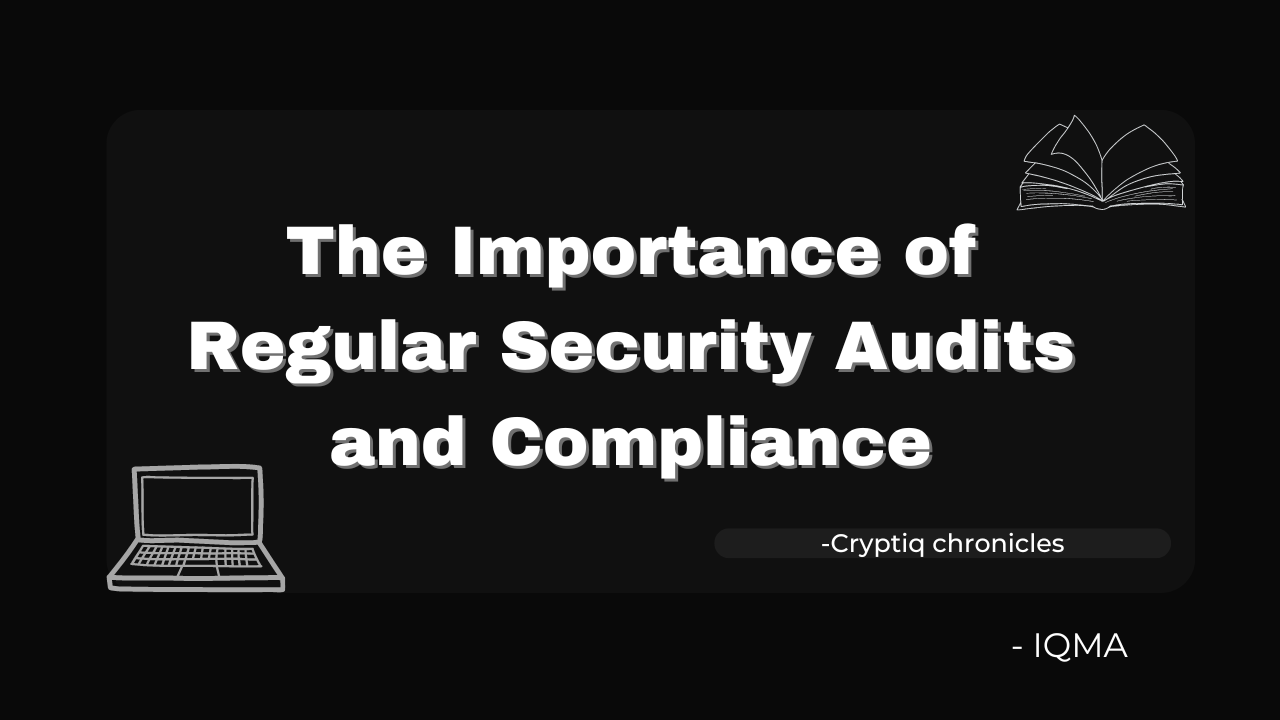The Importance of Regular Security Audits and Compliance
 Crypt(iq)
Crypt(iq)
Companies are hot spots for attackers and threat actors, an organisation that runs services in which a lot of people depend on for some daily need will go through a loss if successfully breached by an attacker.
Imagine Google being hacked, millions of people would definitely be affected by it. Or someone finding a way to hack all apple devices and take control of them or lock users out, it would literally be a world class disaster.
Although there would always be things that can be exploited in a software or device, implementing proper security measures and taking security seriously can considerably hinder attackers from gaining access to your network and prevent a lot of attacks.
This article will give you an overview of these measures and will help you understand why they are needed.
What is a security Audit
A security audit is a process in which the systems or machines in a network are tested and evaluated for vulnerabilities and other security weaknesses.
To perform a security audit, companies can hire agencies that specialise in such services. They simulate threat actors and perform various tasks to try to break into your company, and in the process they come across various bugs, vulnerabilities, or bad security practices that allow such attacks to be carried out.
At the end of the audit, they give suggestions on what can be done by you and the members of your organisation to improve the company’s security posture and make it harder for attackers to get in.
Think about it, wouldn't it be better for this to happen in a controlled situation than in one that is out of your control and so much more dangerous?
Strengthening The Human Factor
'We are only as strong as our weakest link'
There’s a popular phrase in cybersecurity that says 'Humans are the weakest link' . Putting this two together, we see that the easiest thing to hack are humans.
Computers are hardcoded and do not have the ability to go outside their intended purpose, but a human can not only have their emotions exploited, they can also be manipulated to reveal things that aren't meant to be revealed.
Social engineering is a technique in which attackers try to play on humans and use them to get into a company instead of solely trying to gain access through your network from scratch.
Companies should ensure to run training programmes and campaigns to combat this.
Security Training and Awareness
Apart from simply testing your network and machines, companies should take the initiative to organise security training and awareness campaigns. There are a couple of agencies that offer security training and consulting services.
There are basic security tips that are thrown around that can make all the difference when bad threat actors are trying to get into your network. Setting good passwords, not re-using passwords, not oversharing on social media, and so on.
Things like this might be basic knowledge for some people while a lot of other people don’t take them seriously as they don’t understand the risk of not doing so. Running a security awareness campaign can help to educate members of your organisation on these things and bring your company one step closer to having great security.
The role of leaders in security training and practices
A lot of responsibility lies on company heads and leaders in ensuring that a company has a good security posture and measures set in place. A company should not only put in efforts once an attack has already taken place, but should work proactively to educate its members early on.
This is to prevent future breaches, especially ones that could've been easily avoided simply through sensitisation and implementation of basic cybersecurity measures, most of which are often neglected and overlooked.
Note that not just one awareness campaign or test should be done. Company leaders should also ensure to constantly reiterate the importance of good security best practices and the importance of upholding them.
Conclusion
Security should be taken very seriously by Companies and company leaders as it is very important and neglecting it can lead to a lot of issues, including but not restricted to data breaches, ransomware attacks and denial of service attacks.
Proactive steps should be taken to prevent this from happening and to keep your organisation safe from cyber attacks.
What Next?
Share this article with others and on your social media platforms, and check out more interesting articles here.
Drop a like and comment below if this article was helpful, and feel free to connect with me here or on X (Twitter).
→Iqma
Subscribe to my newsletter
Read articles from Crypt(iq) directly inside your inbox. Subscribe to the newsletter, and don't miss out.
Written by

Crypt(iq)
Crypt(iq)
Exploring engineering and tech.